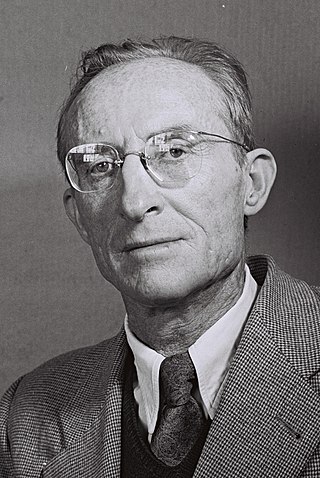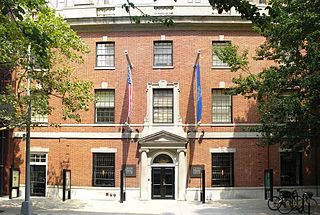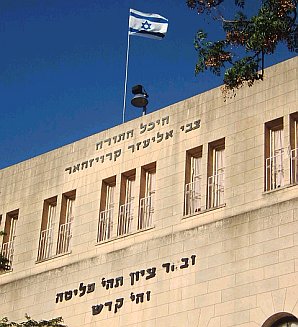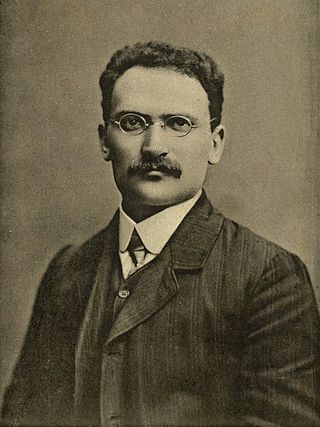
Yiddish is a West Germanic language historically spoken by Ashkenazi Jews. It originates from 9th century Central Europe, providing the nascent Ashkenazi community with a vernacular based on High German fused with many elements taken from Hebrew and to some extent Aramaic. Most varieties of Yiddish include elements of Slavic languages and the vocabulary contains traces of Romance languages. Yiddish is primarily written in the Hebrew alphabet.

The history of the Jews in the Soviet Union is inextricably linked to much earlier expansionist policies of the Russian Empire conquering and ruling the eastern half of the European continent already before the Bolshevik Revolution of 1917. "For two centuries – wrote Zvi Gitelman – millions of Jews had lived under one entity, the Russian Empire and [its successor state] the USSR. They had now come under the jurisdiction of fifteen states, some of which had never existed and others that had passed out of existence in 1939." Before the revolutions of 1989 which resulted in the end of communist rule in Central and Eastern Europe, a number of these now sovereign countries constituted the component republics of the Soviet Union.

Religious Zionism is an ideology that views Zionism as a fundamental component of Orthodox Judaism. Its adherents are also referred to as Dati Leumi, and in Israel, they are most commonly known by the plural form of the first part of that term: Datiim. The community is sometimes called 'Knitted kippah', the typical head covering worn by male adherents to Religious Zionism.

Uri Zvi Greenberg was an acclaimed Israeli poet, journalist and politician who wrote in Yiddish and Hebrew.

YIVO is an organization that preserves, studies, and teaches the cultural history of Jewish life throughout Eastern Europe, Germany, and Russia as well as orthography, lexicography, and other studies related to Yiddish.
A Zionist youth movement is an organization formed for Jewish children and adolescents for educational, social, and ideological development, including a belief in Jewish nationalism as represented in the State of Israel. Youth leaders in modern youth movements use informal education approaches to educate toward the movement's ideological goals.
Reform Zionism, also known as Progressive Zionism, is the ideology of the Zionist arm of the Reform or Progressive branch of Judaism. The Association of Reform Zionists of America is the American Reform movement's Zionist organization. Their mission “endeavors to make Israel fundamental to the sacred lives and Jewish identity of Reform Jews. As a Zionist organization, the association champions activities that further enhance Israel as a pluralistic, just and democratic Jewish state.” In Israel, Reform Zionism is associated with the Israel Movement for Progressive Judaism.
A Jewish day school is a modern Jewish educational institution that is designed to provide children of Jewish parents with both a Jewish and a secular education in one school on a full-time basis. The term "day school" is used to differentiate schools attended during the day from part time weekend schools as well as secular or religious "boarding school" equivalents where the students live full-time as well as study. The substance of the "Jewish" component varies from school to school, community to community, and usually depends on the Jewish denominations of the schools' founders. While some schools may stress Judaism and Torah study others may focus more on Jewish history, Hebrew language, Yiddish language, secular Jewish culture, and Zionism.

The history of the Jews in Latvia dates back to the first Jewish colony established in Piltene in 1571. Jews contributed to Latvia's development until the Northern War (1700–1721), which decimated Latvia's population. The Jewish community reestablished itself in the 18th century, mainly through an influx from Prussia, and came to play a principal role in the economic life of Latvia.

Nohum Shtif, was a Jewish linguist, literary historian, publisher, translator, and philologist of the Yiddish language and social activist. In his early years he wrote under the pen name Baal Dimion.

From the founding of political Zionism in the 1890s, Haredi Jewish leaders voiced objections to its secular orientation, and before the establishment of the State of Israel, the vast majority of Haredi Jews were opposed to Zionism, like early Reform Judaism, but with distinct reasoning. This was chiefly due to the concern that secular nationalism would redefine the Jewish nation from a religious community based in their alliance to God for whom adherence to religious laws were “the essence of the nation’s task, purpose, and right to exists,” to an ethnic group like any other as well as the view that it was forbidden for the Jews to re-constitute Jewish rule in the Land of Israel before the arrival of the Messiah. Those rabbis who did support Jewish resettlement in Palestine in the late 19th century had no intention to conquer Palestine and declare its independence from the rule of the Ottoman Turks, and some preferred that only observant Jews be allowed to settle there.

Yitzchak Yaacov Reines, was a Lithuanian Orthodox rabbi and the founder of the Mizrachi Religious Zionist Movement, one of the earliest movements of Religious Zionism, as well as a correspondent of Theodor Herzl.

Located in the Poznań province west of Łódź, Kalisz was for centuries a border town between Poland and Germany. One of the oldest cities in Poland, Kalisz also played a pivotal role in Polish Jewish history: in 1264, Bolesław I the Pious, ruler of the western part of Poland (Wielkopolska), was the first to grant a charter to the local Jewish community, giving them settlement rights, legal protection, and certain religious and financial freedoms. This "Statute of Kalisz" was extended to the whole country by King Casimir the Great and expanded by later Polish rulers. It provided the legal foundation for Jewish rights in Poland.
Hashkafa is the Hebrew term for worldview and guiding philosophy, used almost exclusively within Orthodox Judaism. A hashkafa is a perspective that Orthodox Jews adopt that defines many aspects of their lives. Hashkafa thus plays a crucial role in how these interact with the world around them, and influences individual beliefs about secularity, gender roles, and modernity. In that it guides many practical decisions—where to send children to school, what synagogue to attend, and what community to live in—hashkafa works in conjunction with halakha or Jewish law.
As an organized nationalist movement, Zionism is generally considered to have been founded by Theodor Herzl in 1897. However, the history of Zionism began earlier and is intertwined with Jewish history and Judaism. The organizations of Hovevei Zion, held as the forerunners of modern Zionist ideals, were responsible for the creation of 20 Jewish towns in Palestine between 1870 and 1897.

The negation of the Diaspora is a central assumption in many currents of Zionism. The concept encourages the dedication to Zionism and it is used to justify the denial of the feasibility of Jewish emancipation in the Diaspora. Life in the Diaspora would either lead to discrimination and persecution or to national decadence and assimilation. A more moderate formulation says that the Jews as a people have no future without a "spiritual center" in the Land of Israel.

Masorti Olami is the international umbrella organization for Masorti Judaism, founded in 1957 with the goal of making Masorti Judaism a force in the Jewish world. Masorti Olami is affiliated with communities in over 36 countries, representing with partners in Israel and North America close to two million people worldwide, both registered members and non-member identifiers. Masorti Olami builds, renews, and strengthens Jewish life throughout the world, with efforts that focus on existing and developing communities in Europe, Latin America, the former Soviet Union, Africa, Asia, and Australia. More than 140 kehillot (communities) are affiliated with Masorti Olami in Argentina, Aruba, Australia, Bolivia, Brazil, Chile, Colombia, Cuba, the Czech Republic, Ecuador, El Salvador, France, Germany, Honduras, Hungary, India, Israel, Italy, Japan, Kenya, Mexico, the Netherlands, Paraguay, Peru, Poland, Portugal, Russia, South Africa, Spain, Sweden, Uganda, Ukraine, Uruguay, the United Kingdom and additionally, more than 600 in Canada and the United States and over 80 communities in Israel. All of Masorti Olami's activities are conducted within the context of the overall Conservative Judaism movement, in close cooperation with its affiliated organizations in North America and Israel. The current executive director is Rabbi Mauricio Balter.

Bundism was a secular Jewish socialist movement whose organizational manifestation was the General Jewish Labour Bund in Lithuania, Belarus, Poland, and Russia, founded in the Russian Empire in 1897.

Dov Ber Borochov was a Marxist Zionist and one of the founders of the Labor Zionist movement. He was also a pioneer in the study of the Yiddish language.

Esther Frumkin, born Malkhe Khaye Lifshitz and also known as Mariya Yakovlevna Frumkina, was a Belarusian Bundist revolutionary and publicist and Soviet politician who served as leader of the General Jewish Labour Bund in Lithuania, Poland and Russia, and later of the Yevsektsiya in the Soviet Union. An ardent proponent of the Yiddish language, her political position on Jewish assimilation satisfied neither traditional Jews nor the Soviet leaders.















